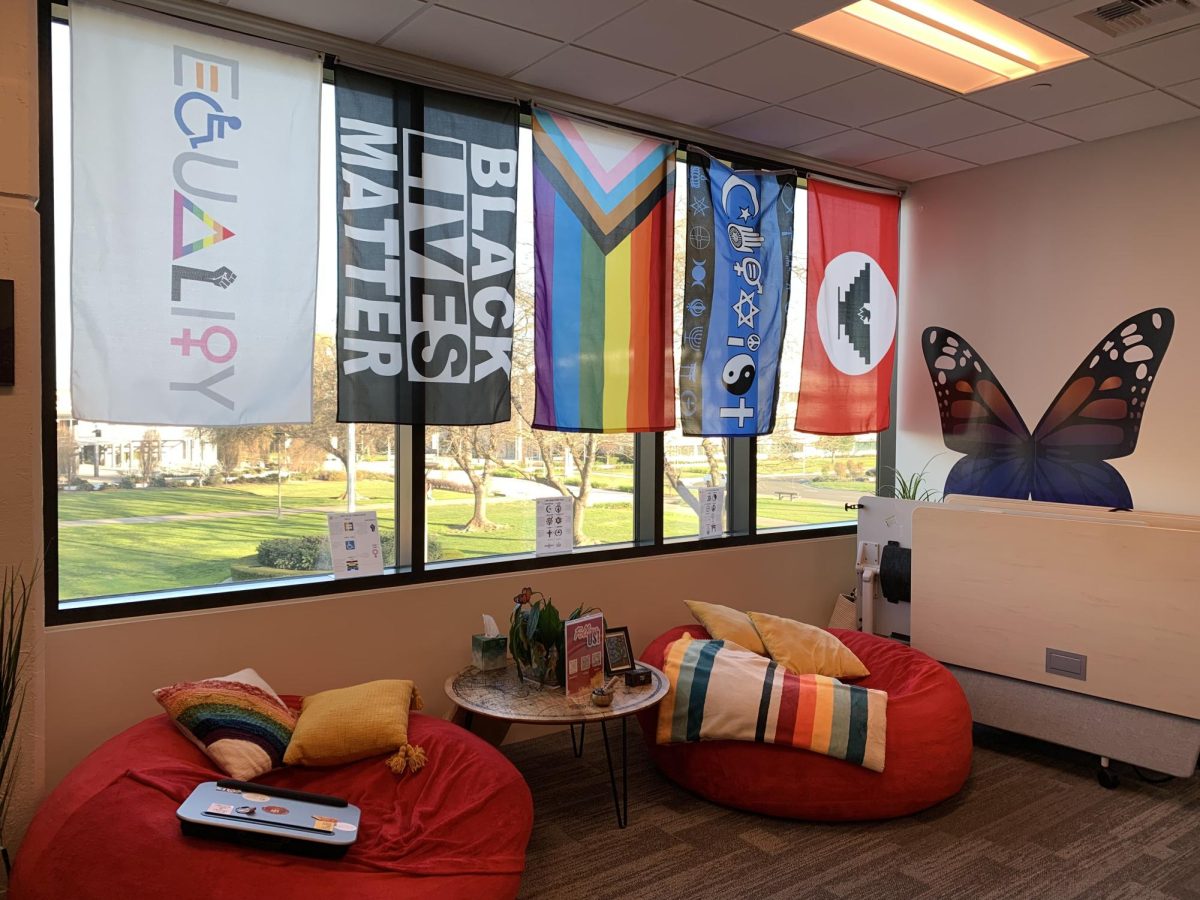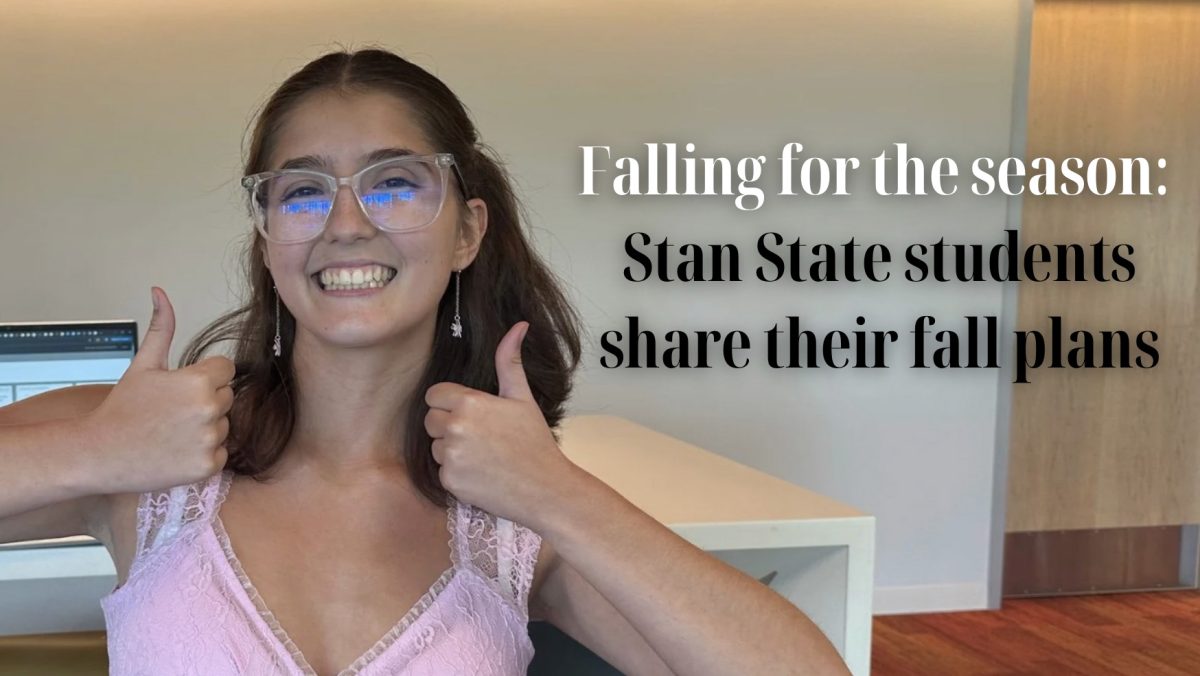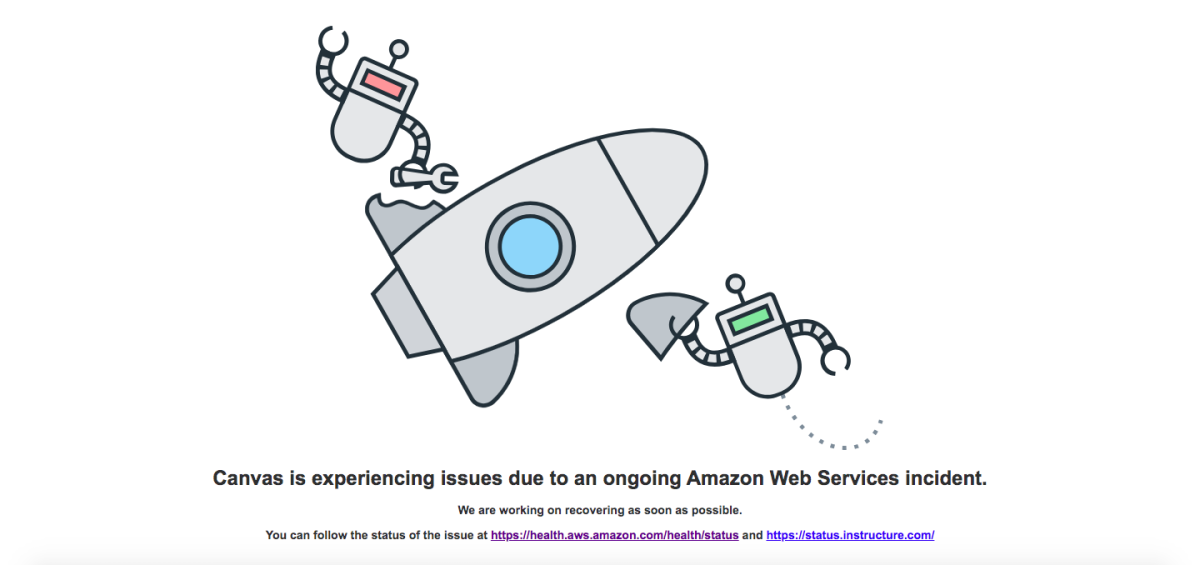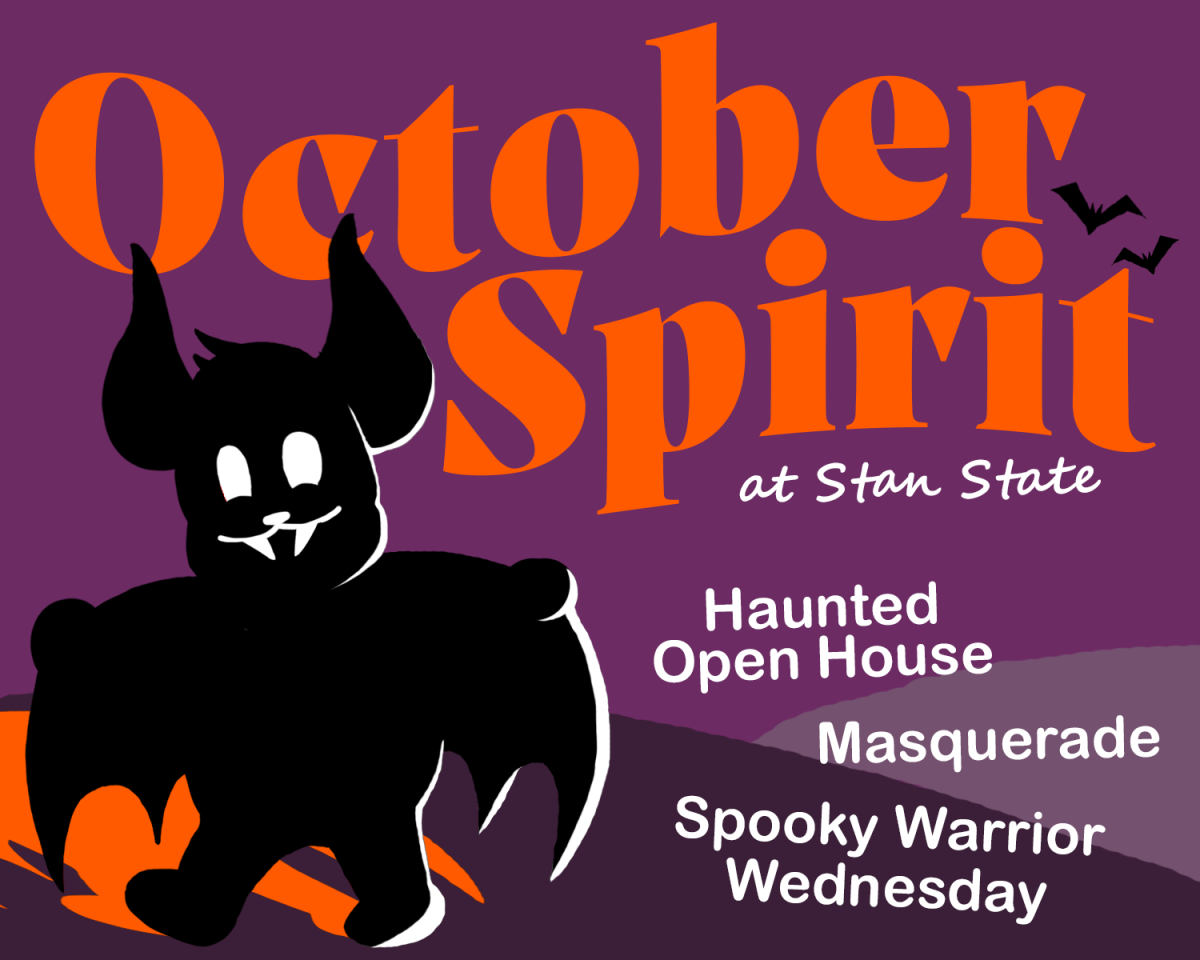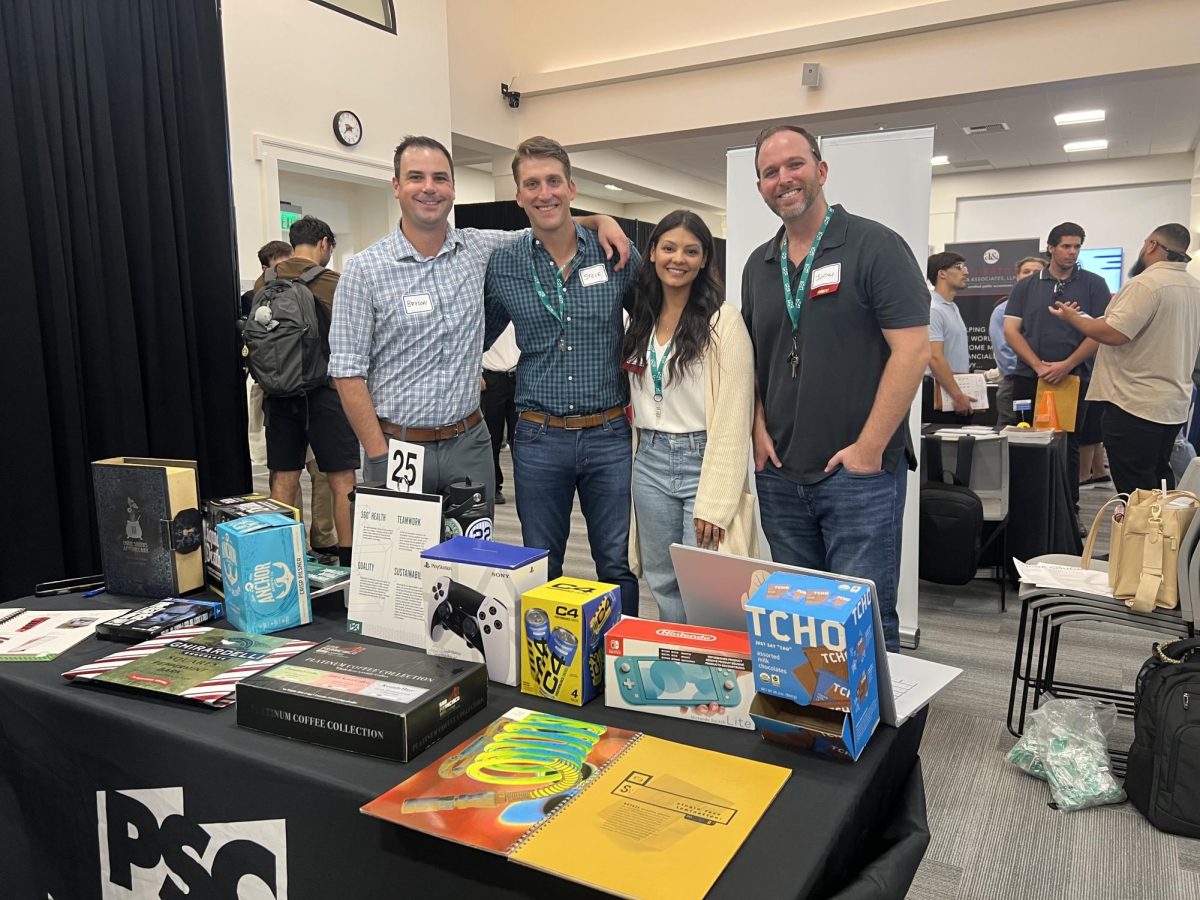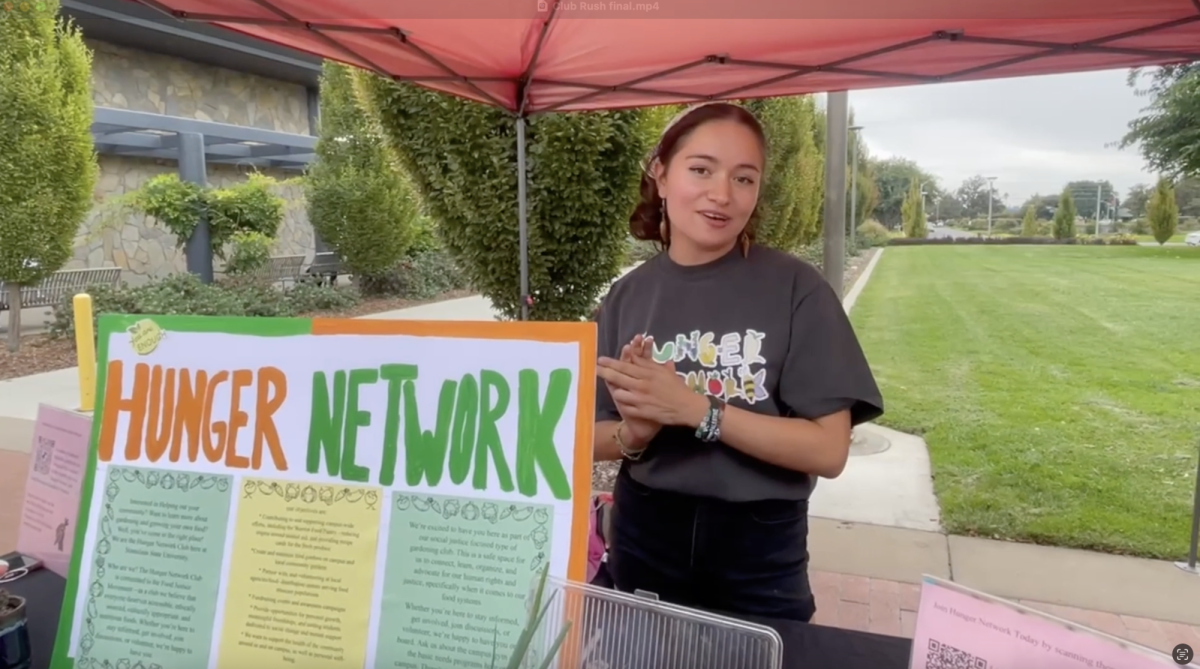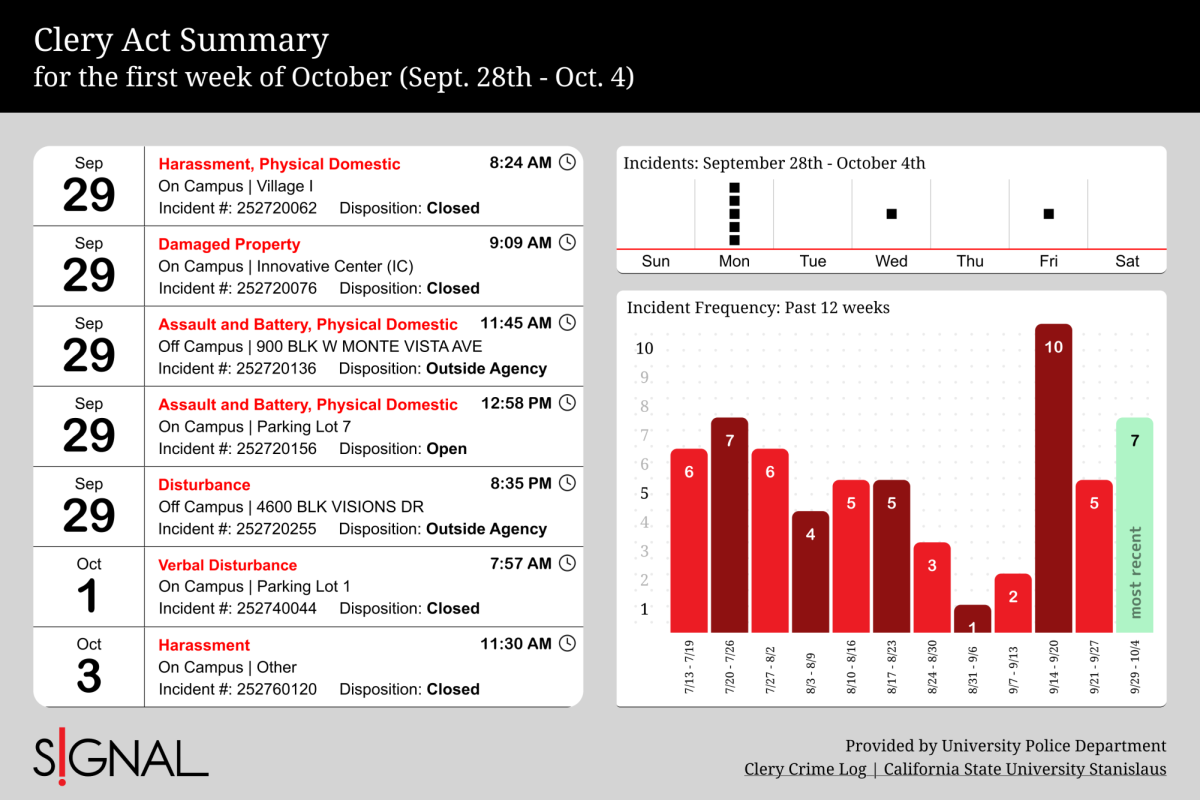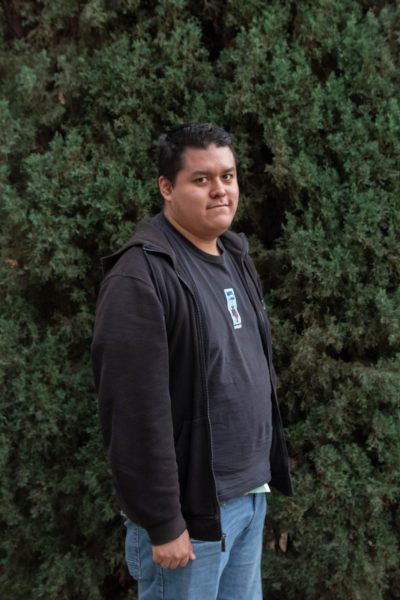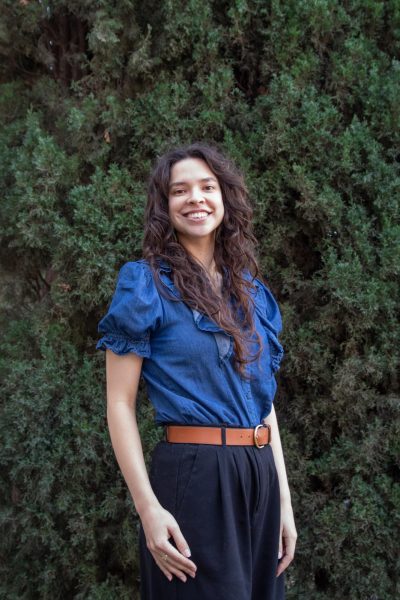Whether students are out or exploring their identities, the Warrior Cross Cultural Center’s (WCCC) LGBTQ+ Mentorship Program offers a safe, welcoming space for LGBTQ+ students and faculty to connect and build community.
The program provides support in students’ academic, personal, social and professional lives and often hosts meet-and-greets to help them connect with faculty at CSU Stanislaus.

One recent meet-and-greet was held in Room L201 of the Vasché Library, where students, faculty and mentors gathered in the WCCC Conference Room to share food and discuss their interests and professions. The program hosts events on both the Turlock and Stockton campuses.
Mentors and Members of the Program
Dr. Adam Devitt (Associate Professor of Science Education) serves as the director of the LGBTQ+ Mentorship Program. He has been at Stan State for about six years and has led the program for the past three. Devitt coordinates events, matches students with mentors and recruits staff and faculty interested in becoming mentors.
Reflecting on his experience, Devitt said, “It’s just a unique experience helping a queer individual both socially and once you get out in your professional life, and I think this is just important to share that with people that are in college. I know that I didn’t have a person that I could look up to and talk to and ask questions to as I was navigating college and entering my teaching career.”
Dr. Jamiee Cook (Assistant Professor for American Literature and Culture) is another mentor who supports the queer community through her academic work in LGBTQ+ literature. Although new to the program, she previously served as a mentor in 2016 and 2017. Cook helps with meet-and-greet events and creates promotional flyers.

Dr. Cook’s past experience is one reason she rejoined the program.
“So when the program was just getting started years ago, I was a mentor then, and I really enjoyed it,” she said. “I really enjoyed working with queer and trans students and trying to be a source of support. I myself identify as a lesbian, and I didn’t feel like there was much LGBTQ+ presence on campus when I was a student.”
As the program has grown, Cook said she looks forward to connecting with more LGBTQ+ students. Devitt also said he hopes to serve as a mentor that students can look up to and share with.
One of those students is Victor Arreola (Art, Senior) and member of the LGBTQ+ Mentorship Program.

“I joined for a sense of community, wanting to be in communication and build relationships with other queer students,” Arreola said, “and also to get mentorship from faculty with experience helping students going into the workforce as queer people.”
Arreola is still looking for a mentor but said he has already found a strong sense of community through the program.
He has attended several meet-and-greets and said that while things may start off a bit awkward, conversation and laughter help people open up and have fun. That’s how, he said, students and mentors really start to get to know one another.
Advice Offered by the LGBTQ+ Mentorship Program
Dr. Jamiee Cook shared the importance of seeking support during college.
“I think first, make sure that you are surrounding yourself with as many supportive and accepting people as possible,” she said. “We don’t all have the privilege to have that kind of support from our families of origin, so finding that in college can be really liberating for a lot of people.
“Finding mentors—folks who are older than you and have gone through some of the developmental stages you’re going through now as a queer or trans person can be really useful,” Cook continued. “And the other thing I will say is that we are in a period of political uncertainty around LGBTQ+ rights and acceptance.”

“We’ve seen the pendulum swing in the opposite direction the last few years. So doing what you can take care of yourself and practicing self and community care I think is the most important way that we can push back against the rampant homophobia and transphobia we see in our political system right now.”
Dr. Devitt suggested to explore the program and take that first step.
“I encourage people to look for our meet-and-greets and come meet some of the mentors and students who are a part of the program,” he said. “Ask questions about what they’re interested in.”
“Don’t be afraid to join!” said Arreola. “This is a space created for students like you, and the relationships you make here you won’t regret.”
In a time of growing political and social challenges, building a community of support, especially with mentors, can make a lasting difference. For more information about the program or to sign up as a mentee, visit the LGBTQ+ Mentorship Program’s website.


